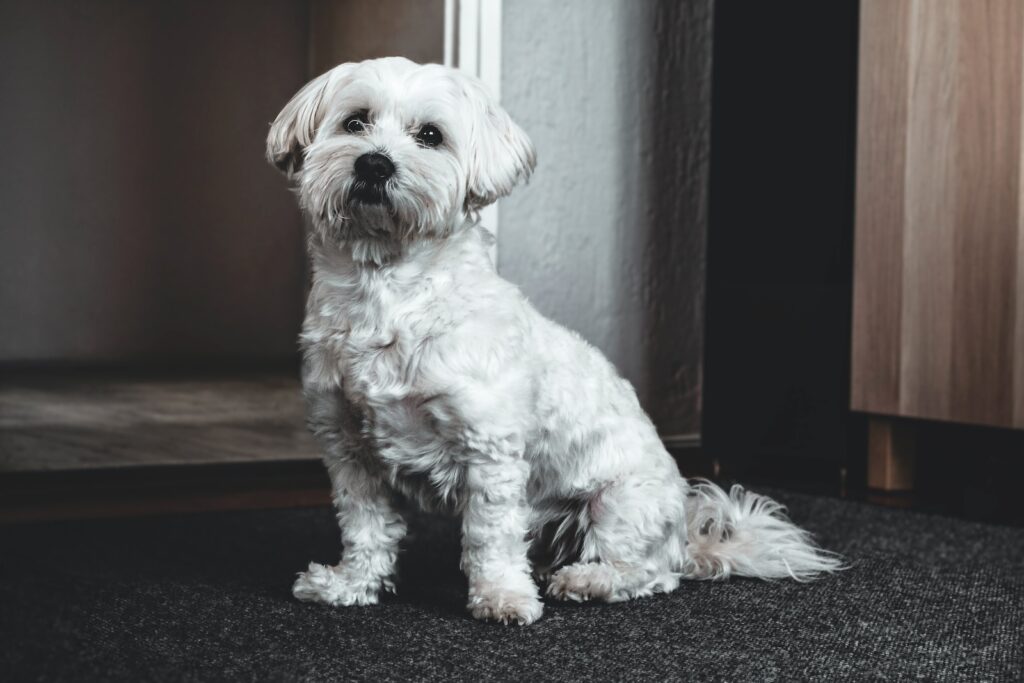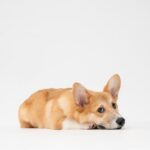Can Dogs Eat Corn? — Yes, They can
Yes, dogs can eat corn in moderation. It can be a healthy and safe addition to their diet if prepared properly. Corn is a common ingredient in many commercial dog foods and treats because it provides carbohydrates, fiber, and essential nutrients. However, it is important to note that corn should always be cooked and served without any seasoning or additives, such as salt or butter.
Can Puppies Eat Corn?
Puppies can eat corn, but it should be introduced gradually and in small quantities. Their digestive systems are still developing, so it’s essential to ensure that the corn is well-cooked and easily digestible for them. Additionally, puppies should never be given whole kernels of corn, as it poses a choking hazard. Instead, corn can be mixed with their regular puppy food as a treat or to provide additional nutrients.
Things to consider when feeding corn to puppies?
When feeding corn to puppies, it is important to consider their age, overall health, and any potential allergies or sensitivities they may have. Start by introducing corn gradually into their diet and monitor their reaction. If you notice any digestive issues or allergic reactions, such as diarrhea, vomiting, or skin irritations, discontinue feeding corn and consult with your veterinarian.
Nutritional Benefits of Corn for Dogs — Why Corn is Good for Dogs?
1. Carbohydrates and Fiber
Corn is a good source of carbohydrates and dietary fiber, which provides energy and promotes healthy digestion in dogs. The fiber content in corn helps regulate bowel movements and can prevent constipation.
2. Essential Nutrients
Corn contains various essential nutrients that are beneficial for dogs, including vitamin C, vitamin B6, potassium, and folic acid. These nutrients contribute to overall health and support the immune system.
3. Antioxidants
Corn contains antioxidants, such as lutein and zeaxanthin, which promote eye health and reduce the risk of age-related vision problems in dogs. These antioxidants can also support the overall immune function and protect against cellular damage.
4. Weight Management
As corn is a low-calorie food, it can be a suitable choice for dogs on a weight management diet. It can provide a feeling of fullness without adding excessive calories, making it a satisfying option for dogs with weight concerns.
5. Skin and Coat Health
The essential fatty acids present in corn contribute to maintaining a healthy skin and coat in dogs. These fatty acids help with moisturization and reduce the risk of dry skin and issues like excessive shedding.
Potential Allergies: Can Dogs Be Allergic to Corn?
While corn is generally considered safe for dogs, some can be allergic or sensitive to it. Common symptoms of a corn allergy can include itching, skin rashes, gastrointestinal upset, and ear infections. If you suspect your dog may be allergic to corn, consult with a veterinarian to determine the best course of action.
Symptoms of Corn Allergies in Dogs
- Itching and scratching
- Skin rashes or hives
- Red or inflamed skin
What to Do If Your Dog Shows Symptoms?
- Consult a Veterinarian: If your dog shows symptoms of a corn allergy, it is important to consult with a veterinarian for a proper diagnosis and guidance on managing the allergy.
- Allergy Tests: Your veterinarian may recommend allergy tests to confirm the corn allergy and identify other potential allergens that may be causing similar symptoms.
- Dietary Changes: If your dog is diagnosed with a corn allergy, your veterinarian will likely recommend eliminating corn and any corn-containing products from their diet. They may suggest alternative grain options or a specialized hypoallergenic diet.
Recommended Amount: How Much Corn Can a Dog Consume?
The recommended amount of corn a dog can consume depends on their size, age, and overall health. As a general guideline, corn should only make up a small portion (10–15%) of their overall diet. It is important to balance their diet with other nutritious foods and consult with a veterinarian to determine the appropriate portion size for your specific dog.
Things to Consider When Feeding Corn to Dogs
When feeding corn to dogs, it is crucial to avoid seasonings, spices, and additives such as salt or butter. These can be harmful or even toxic to dogs. Additionally, always serve corn in a cooked and easily digestible form, as raw corn kernels can be difficult for dogs to digest and may pose a choking hazard.
How to Feed Corn to Dogs: A Quick Guide
Feeding corn to dogs can be a delicious and nutritious addition to their meals. Here are a few quick recipe ideas:
Corn and Chicken Medley
Ingredients:
- 1 cup cooked and shredded chicken
- ½ cup cooked corn
- 1 tablespoon olive oil
- Optional: sprinkle of dried parsley
Instructions:
- In a pan, heat the olive oil and add the cooked chicken and corn. Stir well.
- Cook for a few minutes until heated through.
- Remove from heat and let it cool before serving it to your dog.
Corn and Carrot Treats
Ingredients:
- 1 cup cooked and mashed carrots
- ½ cup cooked corn
- 1 egg
Instructions:
- Preheat the oven to 350°F (175°C) and line a baking sheet with parchment paper.
- In a bowl, combine the mashed carrots, cooked corn, and egg. Mix well.
- Drop spoonfuls of the mixture onto the prepared baking sheet, shaping them into small treats.
- Bake for 15–20 minutes or until golden brown.
Conclusion
In conclusion, dogs can safely enjoy corn as part of their diet, as long as it is cooked and served in moderation. It provides various nutritional benefits, such as carbohydrates, fiber, essential nutrients, and antioxidants. However, it is crucial to introduce corn gradually, especially for puppies, and to be vigilant for any signs of allergies. Always consult with a veterinarian before making any significant changes to your dog’s diet to ensure their health and well-being.






